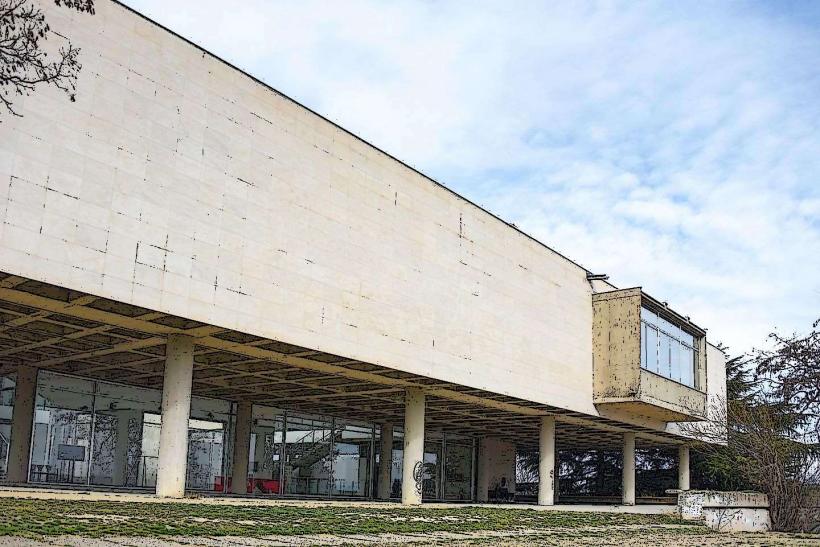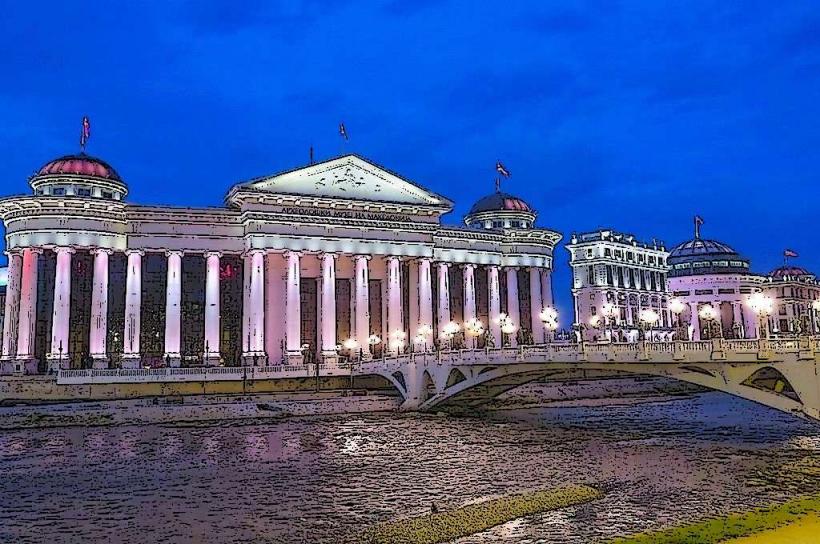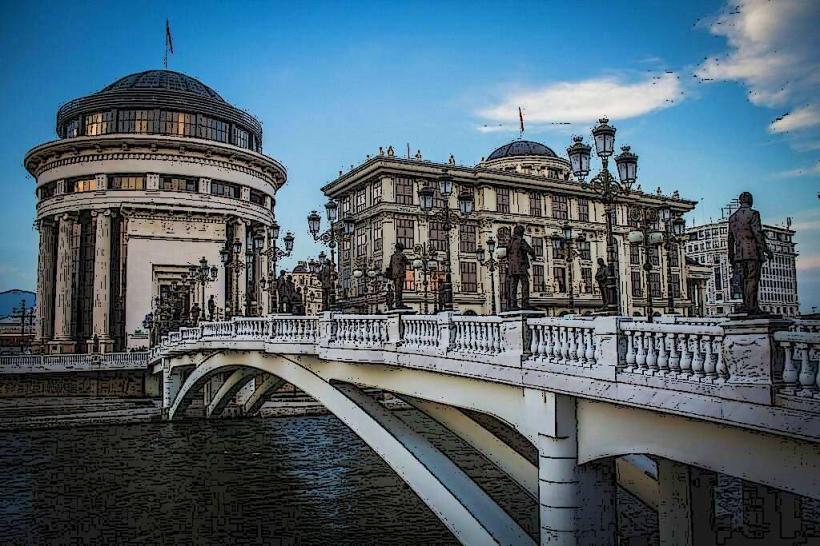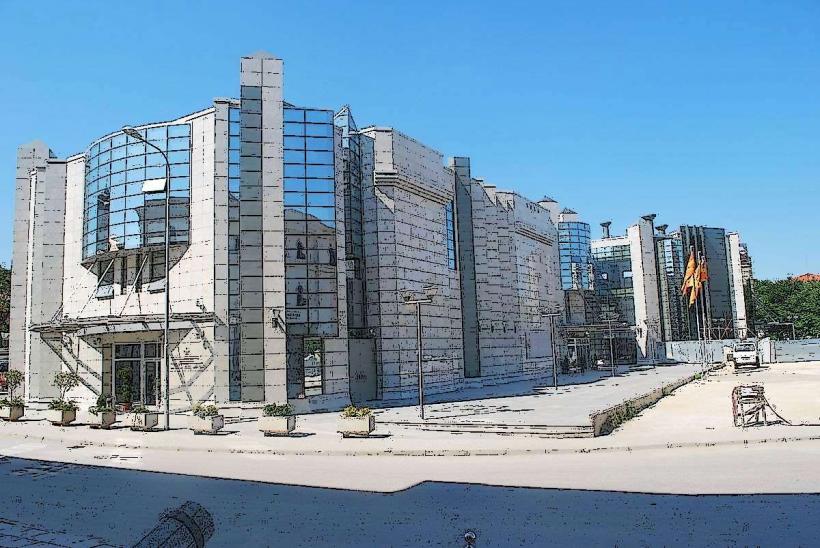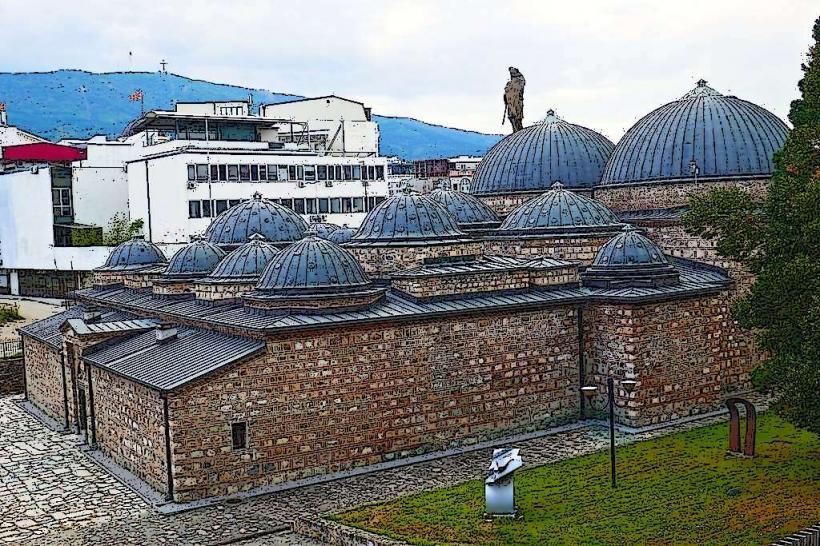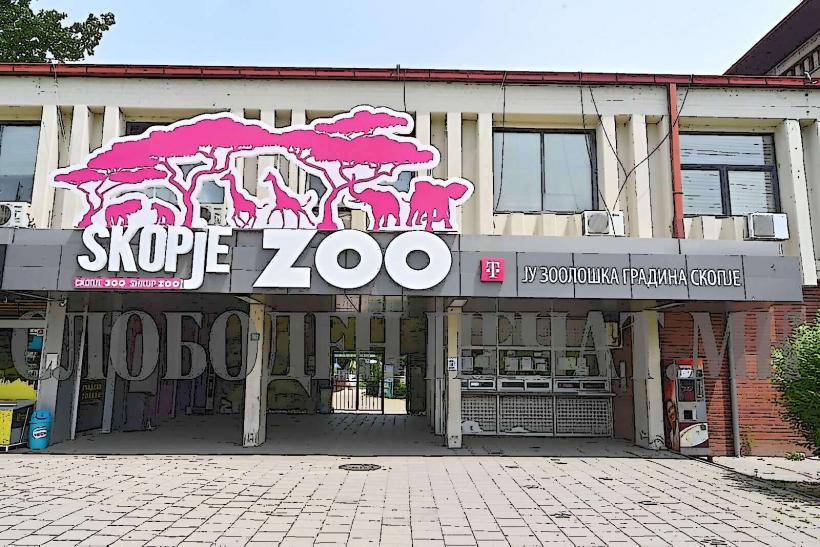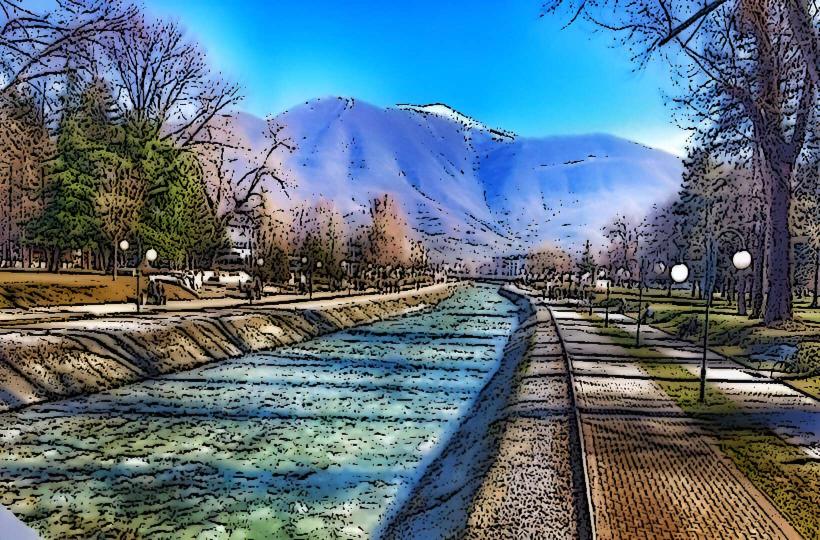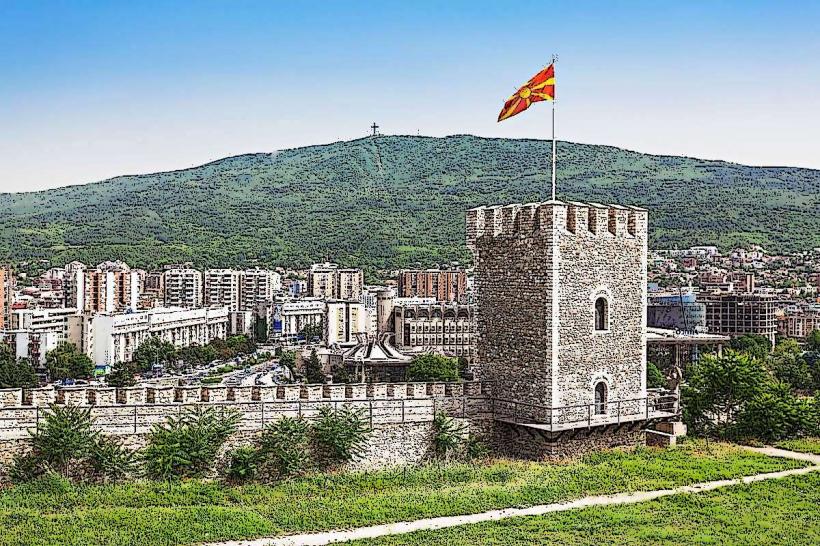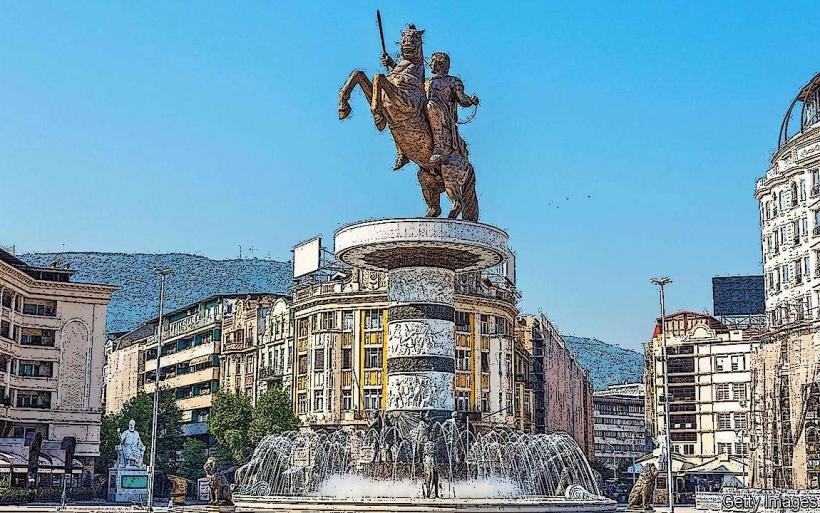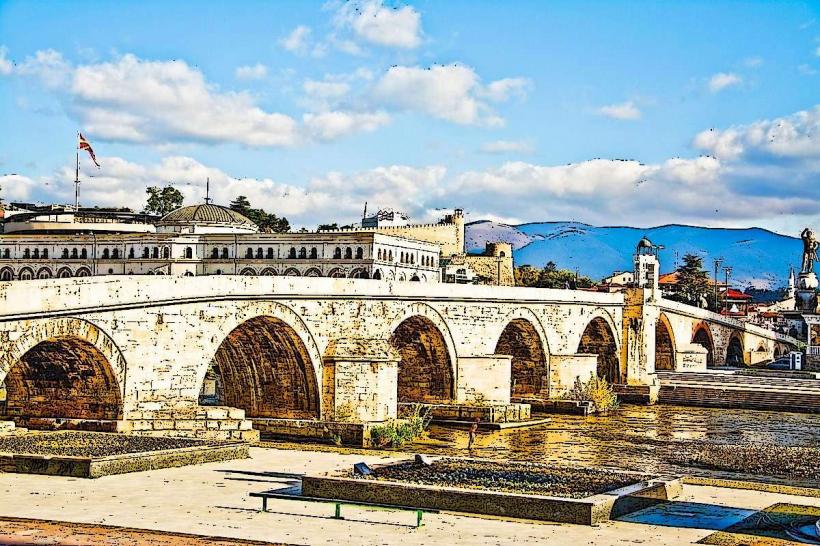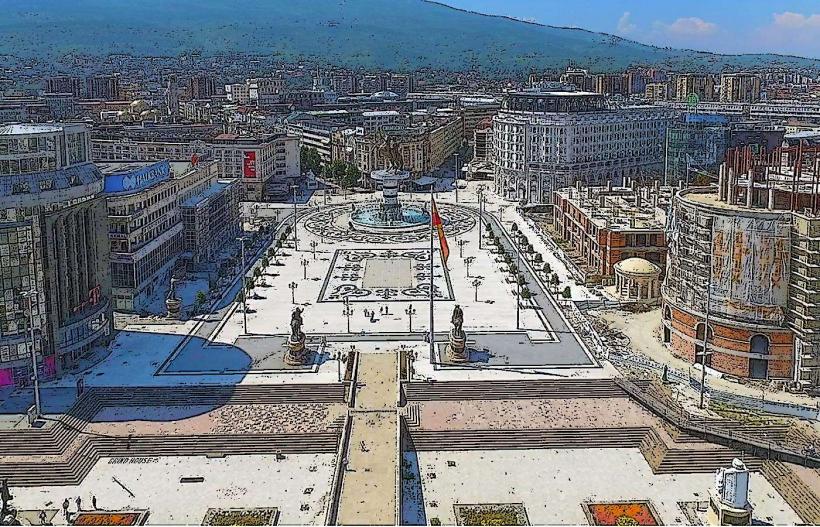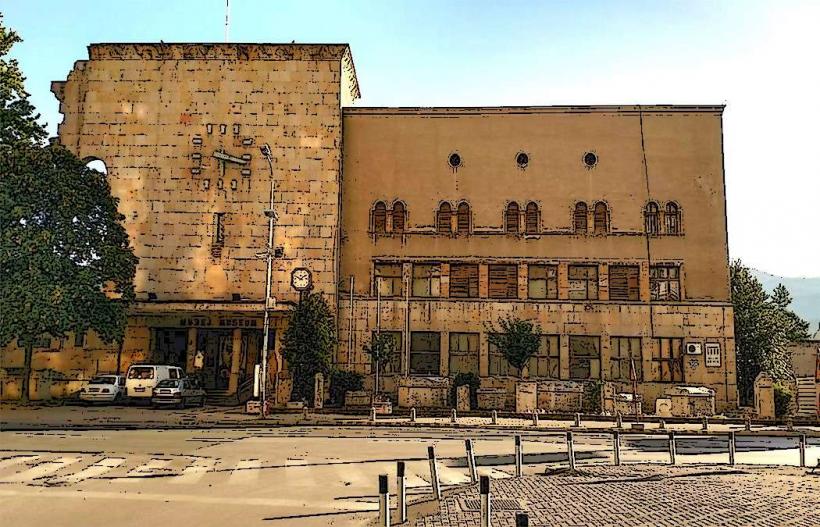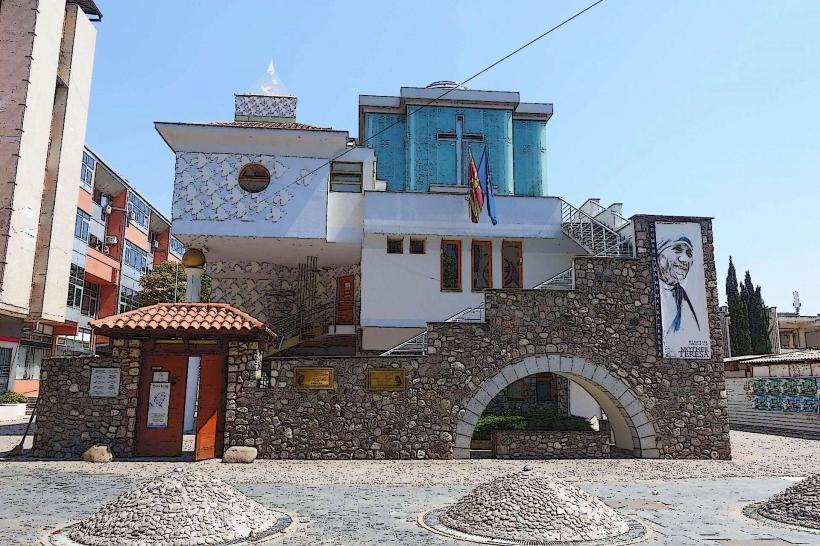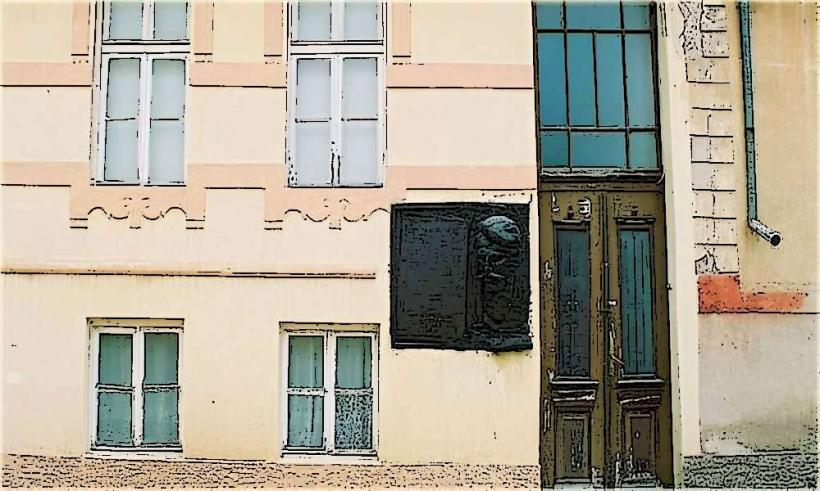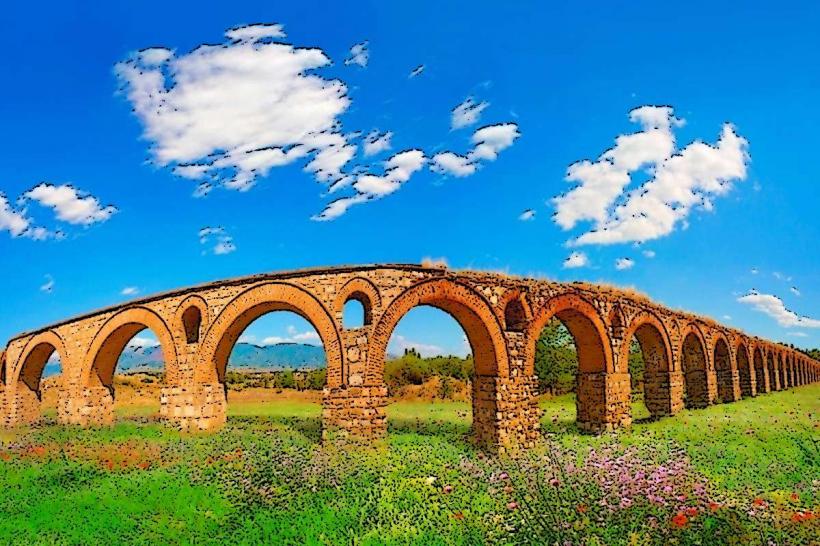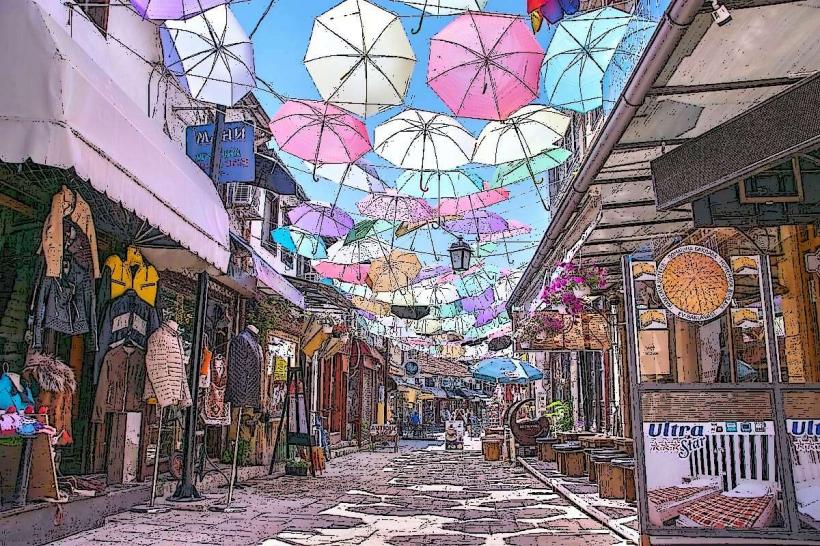Information
Landmark: Church of St. PanteleimonCity: Skopje
Country: North Macedonia
Continent: Europe
Church of St. Panteleimon, Skopje, North Macedonia, Europe
The Church of St. Panteleimon is a 12th-century Byzantine monastery complex located on the slopes of Mount Vodno in the village of Gorno Nerezi, near Skopje. It is globally recognized as a pinnacle of Comnenian-era art, containing frescoes that predate the emotional realism of the Italian Renaissance by over a century.
Visual Characteristics
The church is a compact, cross-in-square structure built with alternating layers of natural stone and brick. It features a central dome supported by a four-columned interior and four smaller domes at the corners. The exterior is modest in scale, while the interior is covered in high-fidelity frescoes, including the famous "Lamentation of Christ," characterized by deep blue backgrounds and dramatic human expression.
Location & Access Logistics
The site is situated approximately 8km from the Skopje city center in the village of Gorno Nerezi. It is accessible by car via the R1102 and local mountain roads leading up Mount Vodno. Public Bus Line 28 provides transport from the city center to Gorno Nerezi, followed by a short uphill walk. Parking is available in a dedicated lot adjacent to the monastery gates.
Historical & Ecological Origin
The church was commissioned in 1164 by Alexios Angelos Komnenos, a member of the Byzantine imperial family, during the reign of Manuel I Komnenos. It was built on a granite and metamorphic rock plateau that offers a natural vantage point over the Skopje Valley. The surrounding environment is a mix of oak forest and cultivated monastic gardens.
Key Highlights & Activities
The primary activity is the observation of the 12th-century fresco cycle, specifically the "Deposition from the Cross" and the "Lamentation." Visitors can also explore the monastery courtyard and the adjacent "Ethno Village" complex. The site serves as a frequent destination for students of art history and Byzantine studies.
Infrastructure & Amenities
The complex includes public restrooms and a small shop selling religious icons and local honey. 4G cellular signals are generally available, though reception can be intermittent inside the thick stone walls. A high-end restaurant and a café are located within the monastery's outer walls, providing shaded seating and full meals.
Best Time to Visit
The best time for photography is the late morning, when natural light enters through the narrow windows of the domes to illuminate the frescoes. The monastery is typically open daily from 09:00 to 18:00. Spring and autumn offer the most temperate weather for the outdoor courtyard and the scenic drive up the mountain.
Facts & Legends
A significant historical oddity is that the frescoes were painted over during the Ottoman period and remained hidden under plaster for centuries, which unintentionally preserved their vibrant colors until they were rediscovered in the early 20th century. Art historians often cite the emotional intensity of the Nerezi frescoes as a "Proto-Renaissance" development.
Nearby Landmarks
Millennium Cross (3.4km South-East)
Skopje City Park (4.2km North-East)
Matka Canyon (4.8km West)
Museum of Contemporary Art (4.5km North-East)
Skopje Fortress (Kale) (4.7km North-East)


